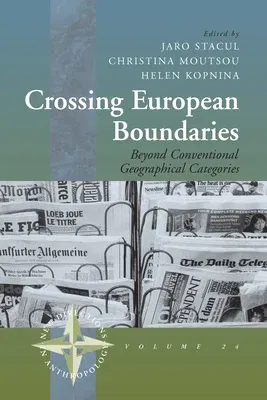Crossing European Boundaries: Beyond Conventional Geographical CategoriesHardcover, 1 December 2005

Qty
1
Turbo
Ships in 2 - 3 days
In Stock
Free Delivery
Cash on Delivery
15 Days
Free Returns
Secure Checkout

Part of Series
New Directions in Anthropology
Print Length
248 pages
Language
English
Publisher
Berghahn Books
Date Published
1 Dec 2005
ISBN-10
1845451503
ISBN-13
9781845451509
Description
Product Details
Book Format:
Hardcover
Country of Origin:
US
Date Published:
1 December 2005
Dimensions:
22.86 x
15.24 x
1.6 cm
Genre:
European Union Studies
ISBN-10:
1845451503
ISBN-13:
9781845451509
Language:
English
Location:
New York, NY
Pages:
248
Publisher:
Weight:
503.49 gm